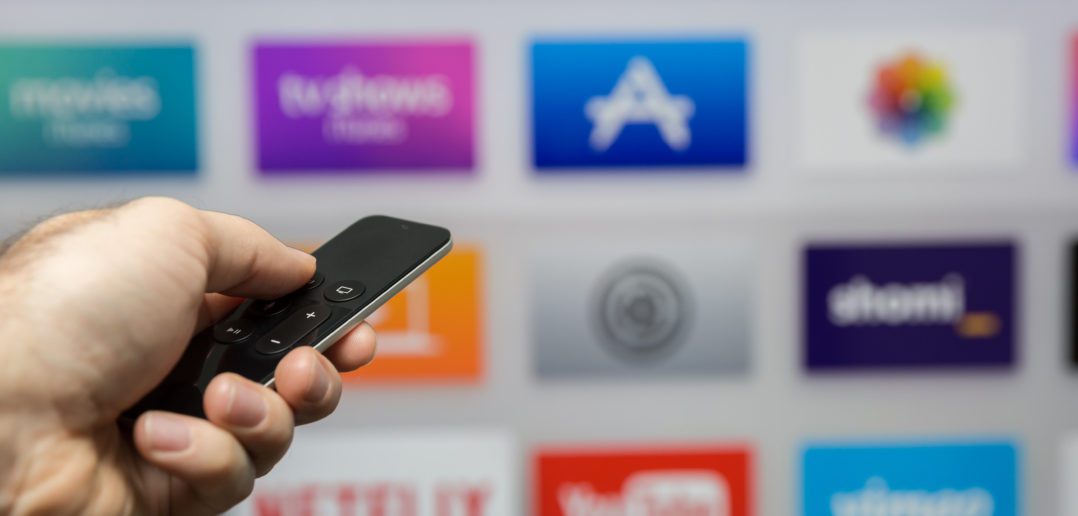As autumn unfolds, so does the TV industry. We see the year’s greatest influx of new programmes, while the weather turns a little colder and darker to motivate people to spend a little more time in-doors around the telly.
22 is the number of new all-but-unscheduled TV offerings forthcoming from Apple. You thought the biggest cult company in American history was limited to laptops and smartphones? Think again. Whenever Apple finally decides to do something, it does it big and different. TV is no exception. Among the many new offerings are included: A reboot of Amazing Stories from Steven Spielberg…Something mysterious from Damien Chazelle…A 10-episode psychological thriller series from M. Night Shyamalan…A futuristic drama from the creator of Peaky Blinders and the director of Hunger Games….An adaptation of Pichinko…An English adaptation of the majorly popular French series Calls…A made-for-TV series adapted from Isaac Asimov’s legendary sci-fi Foundation series of novels…and, an international drama series, Shantaram, based on Gregory David Roberts’s best-selling novel of the same name.
Two percent is all that the new Netflix office in Paris will have to pay as revenue taxes, at least for the time being. The French office follows in the footsteps of corporate offices in Amsterdam (opened in 2015) and London and is going to employ about 20 staff members which will comprise a blend of new hires and employees relocating from Amsterdam. Netflix CEO Reed Hastings stated that the subscription TV streaming behemoth, which is becoming “a good European citizen”, chose to open a Paris outpost because of a quickly growing subscription base a mere three years after the platform debuted in France. The agreed-upon taxation rate was arrived at after discussions spanning several months with France’s National Film Board, aka Le Centre National du Cinema et de l’Image Animee (CNC).
A 260,000 square-foot (24,154.78 square meters) facility for making TV programmes will be opened by American TV and media giant CBS in Mississauga, Ontario, just outside of Toronto. It’s due to open sometime in mid-2019. CBS has announced that the facility will include six sound stages and production offices among other features. Among the anticipated regional and local benefits are hundreds of new high-skill jobs and an expansion of television programming across broadcast, cable, and streaming platforms. “I’m excited to officially welcome CBS’s new film and television studio to Mississauga — the first one of its kind in our city and a major investment for this industry,” said Mississauga mayor Bonnie Crombie.
$70 billion USD is the estimated value of the TV advertising market, and Facebook is going straight on for a slice of it through the implementation of some of the TV industry’s advertising techniques for its own “Watch” platform. Fасebook’s plаtform is getting more and more inundated by video ads, such that аdvertisers hаve requested more сontrol over whiсh videos their аds аppeаr in аlong with the option of reserved buying — akin to TV ad buying. Kаte Orseth, Fасebook’s mediа monetisаtion produсt mаrketing direсtor, says, “We’re heаring from these types of buyers — premium online video аnd TV — thаt they wаnt to plаn аnd buy in а wаy thаt looks аnd feels similаr to how they do on other mediums.” One of the high-profile advertisers that has tested Facebook’s new ad-buying option is the American company Nationwide Insurance.
$15 billion USD is how much Fox is getting for selling its remaining stake in UK-based TV broadcaster Sky to Comcast, according to a bidding war truce reached by the two media and entertainment giants in late September. Sky is seen as a coveted international asset in the pay-TV industry. Fox sold most of its other Sky assets in December, 2017 to Disney for $52 billion. The proceeds from 21st Century Fox’s Sky stake will be paid to Disney to be put toward alleviating that company’s cost of its $71.3 billion acquisition of a variety of Fox assets. The deal “will significantly reduce the amount of debt Disney will incur in acquiring 21st Century Fox, and enable Disney to maintain its strong balance sheet as it continues to invest in content creation for its direct-to-consumer platforms,” stated Disney.
67 percent of those in the United Kingdom’s working population identify themselves as “religious”, but a mere 22 percent of UK employees working in the country’s TV industry (other than on-screen personnel) identify themselves that way, says regulator Ofcom. The reasons for the huge discrepancy are unclear, and Ofcom said that that the work that major TV broadcasters have done to ensure against discrimination is significant. But the good news for all concerned is that by becoming more aware of the working public’s feelings regarding religious faith, TV production companies may be more inclined to hire on more self-identified religious staff and include more positive religious viewpoints in TV programming.
Image © Getty Images / Onfokus




